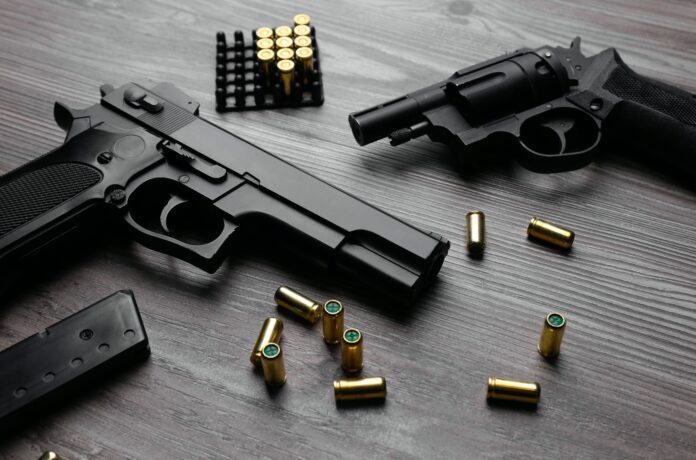After months of ads from the two millionaires running, the mayor’s race in Philadelphia is finally heating up. TV ads from all seven candidates still actively in the race have hit the airwaves, with crime and potholes as focal points. A contentious debate on April 11 sparked some outrage over environmental racism as well as the proposed 76ers stadium in Chinatown.
Philadelphia’s harrowing gun violence problem, which is worse than any other major city except Chicago, remains a key issue in the mayor’s race. Gun violence is top of mind for many Americans after Monday’s horrific mass shooting in Louisville, the 145th mass shooting thus far in 2023.
In the Louisville shooting on April 10, the shooter, Connor Sturgeon, 25, has been revealed as a privileged white man being fast-tracked through the financial industry after achieving a master’s degree and nearly five years climbing the ladder at the prestigious Old National Bank in Louisville. Sturgeon worked first as a summer intern during his undergraduate years between 2018 and 2020 and then, in his current position, since June 2021.
Unlike the usual friendless incel loner that most mass shooters are revealed to be, Sturgeon was popular and accomplished, a star athlete in high school and college who also had a long-time girlfriend. But on learning he was soon to be fired, Sturgeon bought an AR-15 and made a plan to kill his boss and others at the bank — a plan he detailed in a suicide note.
Now Sturgeon’s family, distraught over Sturgeon having murdered five people and injured 8 others, are saying he had mental health challenges. This has become a familiar catch-all excuse for both the pro-gun GOP and others who don’t want to acknowledge that two things cause gun violence: guns and men. While it may be true that some mass shooters suffer from mental illness, people who are mentally ill are far more likely to be victims of violence than perpetrators of it.
In addition, everyone knows killing people is wrong. So the minute one begins to plan a mass killing, one is aware that what they are planning is wrong, immoral, inexcusable and a crime.
It is alleged that Sturgeon gave as his reason for the mayhem he was planning — and which he live-streamed on Instagram — was his impending firing from the bank, the only job he had ever had.
People are fired every day and don’t commit murder, let alone mass murder. It had me thinking about the times I’ve been fired. The first big job I was fired from was my position as managing editor of one of the top religious/academic publishers in the U.S. I was fired for being a lesbian. I was 25 and though I was writing for this publication, the Philadelphia Inquirer, the City Paper and numerous local and national publications as a critic and news and features writer, I thought then that I wanted to become a book editor rather than a journalist.
The firing unmoored me and left me penniless. It also made me concerned for my working future. I hadn’t been out at my publishing job, but nor had I hidden my sexual orientation. One Sunday, someone at the publishing house heard my lesbian radio program, Amazon Country, on WXPN, and mentioned it at the Monday editorial meeting. No mention of lesbianism or gayness was ever stated, but days later I was pink-slipped.
I still remember sitting in my office, looking at the books I had shepherded through the house in the year I had been managing editor, including the one on which I had worked with Holocaust survivor Elie Wiesel. I was in tears as I packed up my things. My assistant came in to give me a hug. I left under a cloud, and that cloud followed me for years.
I was angry. I had in fact been discriminated against. And while I soon landed another job at an academic press that was a better fit, I was even more afraid of my lesbianism becoming an issue for my new employer and causing me to lose another job, which was what happened several months later.
Yet angry and hurt as I was over these two dismissals tied to my being openly lesbian and literally broadcasting it every Sunday, what I didn’t do was buy a gun and kill anyone responsible for these firings.
This week I reported on the new Center for LGBTQ Economic Advancement & Research (CLEAR) and Movement Advancement Project (MAP) study on LGBT+ economic and financial status. It’s a grim picture with anti-LGBTQ bias at its core. Yet despite the surfeit of discriminatory practices in hiring and firing that LGBT+ people experience, there has been only one LGBT+ mass shooter — Audrey Hale — out of this year’s 145 mass shootings. One out of 145.
That didn’t stop the GOP and the gun lobby and anti-LGBTQ politicians like Marjorie Taylor Green, Ron DeSantis, Josh Hawley and others from trying to queer and trans mass shootings. And when Sturgeon was first revealed as the Louisville shooter, the fact that he had his pronouns in his LinkedIn bio was snatched up as a factor in the mass shooting he perpetrated, with Trump aide Collin Rugg referencing Sturgeon as a “pronoun extremist” in a since-deleted post.
Our failure as a society to address the epidemic of and confluence of guns and male shooters is a problem in America. So many other countries have solved the issue of gun violence by banning guns, specificaly access to guns by Sturgeon’s demographic. Only our elected officials can help us to end the violence. But if we refuse to even acknowledge the locus of the problem, how can we begin to fix it?
